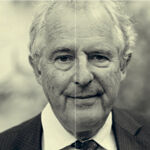Letters: ‘I unwillingly came off the mailing list… it wasn’t a bad thing’
The great and good in general practice – and three health secretaries – share what Pulse magazine has meant to them over their careers

Pulse has been present throughout my medical career but strangely, when I ostensibly needed it most, I lost all personal access to it. Everybody in my health centre had their copies, as did many at the BMA, but whatever I did and whoever I spoke to, I never had my personal copy again. Was this a plot?
As a hospital doctor and GP trainee, Pulse gave me all the medico-political information and opinion, as well as plenty of edited medical highlights of the latest news. Rather than wade through weightier tomes, the snippets of hot news from leading researchers were enough to keep me believing I was up to date. Classified adverts offered jobs across the country. And as I became a principal, there was plenty of ‘how to run your practice’ material that I could use as ammunition with my older and wiser partners.
It was when I got involved in medical politics that I unwittingly came off their mailing list. This was not always a bad thing, as it meant that when my colleagues were breathlessly telling me, ‘Do you know what Pulse is saying about you?’ I could honestly answer that I had no idea. More often than not, the (sometimes) lurid headline did not match the measured text beneath. If you are elected as chair of the BMA GPC, you cannot be surprised when others form strong opinions about you, and occasional journalists write things that are not quite accurate. I read my BMA copy and knew that anything that required an official reaction would be pushed my way by those more agitated than me.
Now everyone will be in the same position as me, as Pulse print comes to an end like many other papers and magazines. I wish it well in the online future.
Dr Laurence Buckman, chair of BMA GPC England, 2007-2013

When I joined my practice 30 years ago, the practice manager would cut out and pin up articles from Pulse when they mentioned one of our GPs. That soon stopped when I started being quoted too often!
However, what this reflected was the importance to the whole practice team of seeing comments and views from GPs, practice managers and others working in general practice expressed in the national press, which reflected what they were also thinking and experiencing. It told them that they were not alone, that others shared similar problems and challenges, and that by articulating these publicly there was a greater chance they would be addressed.
Pulse has played an important role over many years in not only informing the profession about what is happening in general practice (albeit at times a little quicker than some of us had planned) but it has also, and continues to be, a vehicle that enables the voice of GPs and others who are not members of national groups to also be heard and listened to. It is then through this two-way dialogue that changes take place and general practice improves.
As you move to this new publishing arrangement, I’m sure you will continue to hold national bodies and leaders to account, inform and educate the profession, and provide a voice for GPs and their teams.
Dr Richard Vautrey, president of the RCGP

Primary care has long been a distinct and vital component of the NHS. For 64 years, Pulse magazine has served GPs well, championing their achievements, concerns and interests. Regular surveys, news updates and research outcomes have been regular features, as has the criticism of ministers!
As health secretary during the 1990s, I valued the concise writing and news updates from the GP’s perspective. Over the past 64 years, we have witnessed dramatic change and improvement in the NHS. Chemotherapy, renal dialysis and polio vaccine were introduced in the 1960s, as was the decision to make the contraceptive pill available and free to all, dramatically transforming women’s lives.
GPs have faced many reorganisations, perhaps disorganisation, over the decades. Being a GP can be a stressful as well as a deeply rewarding experience. They are closest to patients, families and the community: the best place for prevention and health care to take place when possible.
Congratulations on going digital!
Virginia Bottomley, health secretary, 1992-1995

Pulse has always been my go-to source for up-to-date news and information about grassroots GPs and the state of general practice. When I was chair of the council, each morning and evening I would log on to their website and see what I had missed, what was really bothering my profession and what (often) negative stories there were about me (okay, not all negative).
Thank you, Pulse. Your investigative journalism is on par with any mainstream national newspaper. Your ability to cut to the truth is amazing. I will continue to check you out, maybe not every day, but every week.
Professor Dame Clare Gerada, RCGP president, 2021-2023

As you celebrate this final print edition, I wanted to reflect that Pulse has been both a pleasure and a challenge to work with over the years.
I have valued your great educational material (several printed articles made it into my CPD folders when we still had them in physical copy). During my time as RCGP chair, I really appreciated your great reach to frontline GPs who had never engaged with the college and you very kindly gave me the top spot in The Power50 in 2016.
However, Pulse also caused me plenty of headaches and some personal pain with your journalistic, headline-grabbing style that occasionally got readers engaged and inflamed at the expense of balanced coverage. This in turn triggered (albeit outside of your control) some nasty, aggressive and inappropriate personal attacks. Of course, all that in turn led to me building up my own defences, becoming a lot tougher and developing my own set of survival rules – who knows where I would be without those skills.
So, as you evolve to your online-only model, I genuinely wish you all well, and trust that you will thrive.
Dr Helen Stokes Lampard, RCGP chair, 2016-2019

Pulse has been ever-present throughout my 35-year career as a GP, a respected and accessible source of clinical advice and policy commentary. I always felt that journalists and clinical writers had their finger on the pulse of general practice, guided by an editorial policy that has consistently been supportive of frontline clinicians, critical of system leaders and politicians, and robust at holding professional leaders, including myself, to account.
I can’t help feeling a little sad to see the end of the print issue. It’s difficult to miss a colourful publication when it’s sitting on your consulting desk or, dare I say, on the shelf beside the loo. But times move on and Pulse will remain a key source of information for those who care about general practice.
Dr Martin Marshall CBE, RCGP chair, 2019-2022

In 1984, aged 25, I was completing my vocational training for general practice as a GP registrar in Lincoln. It’s difficult to believe that was almost 40 years ago! That was the point I first encountered Pulse magazine. Bear in mind, this was pretty much pre-internet, so all our information came in paper format.
I was fairly diligent in reading the BMJ and BJGP (I wanted to pass my MRCGP exam), but Pulse was a much easier read. This was the medium for keeping up with medical politics and the issues of the day. GP trainees were also especially interested in the jobs section; it was rather difficult getting a good GP job in those days. There was also good clinical material, especially the photos because pre-internet, we relied on medical photographs in textbooks, magazines and journals.
Dr Maureen Baker CBE, RCGP chair, 2013-2016

I have read Pulse throughout my career, initially as a paper copy arriving at the surgery and more recently online, and I commend the move to evolve with the media landscape and now go fully digital.
Pulse has continued to be a vital channel for us to communicate with the profession over the last 64 years and an important advocate for GPs – never more so than during the pandemic, the biggest challenge in the health service’s history, and as the NHS has continued to face record demand.
Dr Claire Fuller, primary care medical director, NHS England

Over the years, I have a lot to thank Pulse for. The monthly delivery of the printed ‘comic’ heralded an unscheduled coffee break and an opportunity to view the wider landscape of general practice; a view of the bigger picture outside of my own consultation room.
Bearing in mind my GP career started before dial-up internet, Pulse was the link between grassroots GPs and the political world of BMA, GPCs and LMCs. It was here my interest in medical politics was ignited.
In celebrating the longevity of an institution of general practice, the transition to an electronic format is an inevitable development, but one without the mystic of ripping open the cellophane wrapper in anticipation of the headline news.
Dr Gareth Oelmann, chair of BMA GPC Wales

Pulse has been for me a very useful source of information and exchange of ideas about what’s going on in general practice. I particularly like reading the comments from other GPs, and of course Dr Copperfield puts it like we are all thinking and makes me laugh. I’ve only used the electronic version for a number of years now, so the end of printed copy makes no difference to me.
If I had a gripe, it would be for more news from Scotland as a UK publication, but I appreciate that this is a resource issue and Pulse has at least taken on my comments and tightened up on making it clear where things apply to England only.
Dr Andrew Buist, chair of BMA GPC Scotland

Like so many other GPs, I have trained and developed as a GP with Pulse as a constant companion and almost a part of the furniture in every surgery, coffee room and GP’s study I have been in. It has been a skilful combination of education, information and entertainment. Time always moves on, but the traditional and old-fashioned part of me will miss the paper copy.
Dr Alan Stout, chair of BMA GPC Northern Ireland

Pulse has been part of my life since the days of being a GP trainee, when I recall going to a Pulse roadshow with my trainer regarding the infamous new GP contract, which was imposed in 1990. As a newly qualified GP, the iconic blue-topped magazine posted through my letterbox weekly was my prime source of being updated of latest news about general practice, with views and opinions but also mixed with educational content. These were the days before computers and the internet, and where all information was paper based, and when I would frequently pick up my scissors to cut out articles from the magazine for future reference.
After being elected on to the BMA GPC, and thereafter as a member of its executive and as GPC chair, Pulse provided a platform to express my views through quotes, interviews and articles. But equally, the magazine provided challenge and kept medical political leaders on our toes with incisive journalism.
The ending of the print edition of Pulse is certainly an end of an era, but I am sure is the beginning of a new era of dynamic journalism and information of all things general practice in real time. I wish the online magazine every success in the future, building upon its remarkable history of achievements in print.
Dr Chaand Nagpaul, chair of BMA GPC England, 2013-2017

For more than 60 years this award-winning outlet has been informing and educating its readers.
While it is sad to be losing the print edition, I wish Pulse continued success in its online incarnation.
Victoria Atkins, health secretary, 2023-present

I’m sorry to hear of the end of the print edition of Pulse. It has given much excellent service to GPs, and therefore to the whole health service over the years. It has also been much appreciated by secretaries of state who perch precariously at the top of the health system of the nation, in what is the best if perhaps the most difficult job in Government. One thing ministers have never been short of is frank advice – including from Pulse. I hope in new forms that will continue in the future.
William Waldegrave, health secretary, 1990-1992
Pulse has been the heartbeat of general practice for me: highlighting the challenges and the pressures; informing and bringing GPs together. I’m sorry to see the end of the print version, but I’m so happy that we can continue to have Pulse online fighting our corner.
Dr Dave Triska, GP partner in Surrey

The Pulse print magazine has been an invaluable beacon in the landscape of general practice, often the first publication to break the stories and promote wider awareness among those of us in primary care. Its insightful medico-political articles, thought-provoking editorials, and range of columnists have made it an indispensable resource for many of us. The publication’s dedication to providing up-to-date and relevant clinical updates has enriched our ongoing continuing professional development.
Thank you to Pulse print for always having the finger on the Pulse of general practice. Yours will be an enduring legacy.
Dr Selvaseelan Selvarajah, GP in London

The beating heart of Pulse has been to give that perfect mix of high-quality educational updates relevant to its audience of readers along with ensuring they were kept up to date with events of the day. These attributes were particularly important when I had my first in-depth interview as the then ‘youngest’ and ‘first female’ chair of one of the BMA GPC (following in the footsteps of Dr Mary Church, who was the first female co-chair of GPC Scotland and one of a handful of women who led the way in showing the art of the possible for women in what was then a very male-dominated section of the profession).
In addition, Pulse has always been a key publication for my professional life, especially during preparation for my GP exams. Its concise educational updates were perfect for enabling revision alongside caring for my new-born and were invaluable when updating my knowledge ahead of tutorials, thus ensuring no embarrassment when enthusiastic speciality trainees would ask pertinent questions.
My memories of Pulse are really positive. The team always took the time to understand the thinking behind policies and strategies yet were never afraid to ask the difficult questions. The editorials were always thoughtful, insightful and often horizon-scanning as they always considered the longer-term implications or potential unintended consequences as well as the benefits when pronouncements were made on changes that would affect the profession.
I would like to take the opportunity to thank the Pulse team for their support over the years. I know it will continue to thrive in its online presence and I will always remain a loyal and avid Pulse reader because of the quality and relevance of the content it produces.
Dr Charlotte Jones, chair of BMA GPC Wales, 2013-2019

I’m sad to see you are switching to digital only, although, of course, it is totally understandable. I grew up familiar with Pulse due to a GP father who always read it, even though some of the CPD photos were not typical family breakfast table material. We were all proud when there was once a photo of him in it!
When I became a GP myself, I loved reading it. I wrote a blog for you at one point, and was interviewed when I launched my social enterprise to support doctors with stress (unfortunately, it failed; the medical world wasn’t interested then) and was thrilled to be in your ‘top GPs’ list one year, too.
Although I left general practice in 2017, I continue to read Pulse online occasionally to keep up to speed with the landscape. I still have my GMC licence and take part in revalidation.
I’m currently working in the pharmaceutical industry, and two years ago we were proud to develop an educational module on HIV for GPs, which was housed on your website.
Thank you for being such an important part of general practice for many years: informative, interesting, and importantly, supportive of GPs when it feels like not many are.
Wishing you further success in this digital world!
Dr Sara Khan, GP in Hertfordshire

If it is happening in general practice, you read about it in Pulse. I have read it every week for the 32 years of my time in practice (and still do!). Initially, it was in hardcopy, but as I realise I have not read it on paper for a very long time, it is right that Pulse becomes solely digital. Digital publication has also meant faster updates on the GP news. As a GPC negotiator and Scottish GPC chair, I relied on it to keep me right on the state of general practice. In those roles, Pulse never let me forget the issues that all GPs faced and ensured all the views were aired. Keep doing what you’re doing so well.
Dr Alan McDevitt CBE, chair of BMA GPC Scotland, 2012-2018

It is with mixed emotions that I learned of the understandable decision to cease the print publication of Pulse. While I will miss the physical copy, I am excited to explore the possibilities that the digital realm offers. I would like to express my sincere gratitude to the entire team for their dedication and commitment to general practice. Pulse has always been a champion of GPs, and I am confident that it will continue to play a vital role in supporting the profession in the years to come albeit digitally. The interactive nature of your platform will foster a stronger sense of community among GPs and will integrate superbly with your CPD offer; the digital realm offers a wealth of possibilities, allowing us to expand the reach of Pulse‘s content and cater to the ever-increasing demand for trusted information.
Pulse has played a significant role in my career, serving as a valuable source of information, inspiration, and support throughout my time as a GP. I have always found its articles informative, well-written, and relevant to the challenges we face as GPs. Pulse‘s commitment to holding the Government, the NHS, regulators, and professional bodies to account is much needed. I also applaud Pulse for its leadership in campaigning on important issues which has made a real difference in protecting the profession and our patients. I wish you all the best for your digital future.
Sir Mayur Lakhani CBE, RCGP president, 2017-2019

I have been reading Pulse magazine for more than 30 years and it has kept its finger on the pulse of general practice throughout that time providing frontline GPs with the latest developments in primary care, financial advice and commentary on BMA negotiations, not to mention the latest news scoops. When I served as a GP negotiator for GPC UK from 2011 to 2018, the negotiators ‘cabin’ kept a very close eye on Pulse, and the cry of ‘how did Pulse get that story’ was often heard. I have always enjoyed my interviews with Jaimie, Sofia and now the younger staff because they challenge and probe making you in turn define more clearly the tactics and strategy that you’re following.
We used to think that we lived in difficult GP times – ‘semper suivius in excretam sed alta variat’ – but the present day puts the past into context. We could never have imagined how far down politicians would allow the NHS to fall in their attempts to break it and in this psychodrama we rely on the fourth estate to chronicle their actions.
It was poet Seamus Heaney who said, ‘the way we are living, timorous or bold will have been our life’. Let’s continue to work with our colleagues in Pulse to advocate for our practices and our patients; to oppose the destruction and privatisation of the GP service and to cement defiance into all our actions.
Dr Tom Black, chair of BMA Northern Ireland

I’m sorry to see you are coming to the end of Pulse print but I’m relieved to hear that you will continue with the digital format. I have retired recently but retain a keen interest in your publication.
In August 2017, Pulse gave me a the opportunity to voice my thoughts, worries and dismay over Brexit at a difficult time when EU citizens were at a high level of anxiety about their future. My appraisal process at the time was hijacked by this issue which still featured for many subsequent years of my career thereafter.
The sunny uplands never materialised: there was no extra money for the NHS, no more GP appointments, no more housing, schooling, no trade deals, no economic boost. None of the issues have been resolved. We have blue passports and wine in pint bottles. A convincing majority believes Brexit was a mistake.
The serious consequences for individuals envisaged at the time have become reality, and the consequences of Brexit to the health service in the UK are real as well, albeit difficult to account for with reliable data. The loss of freedom of movement, international cooperation and funding for education, research and cooperation have been well documented but receive little prominence in the mainstream media. Meanwhile, the NHS as an institution and as an ideal is dying a slow death as the commodification of public services is moving at pace.
I am grateful for Pulse to give me a platform to speak up at a critical time. You may not quite appreciate how important it was for me personally to be able to say what I had to say, to ensure to have done something at least, even as little as it might appear. My opinion might have been controversial, but to hear me out publicly is a credit to your publication, which I will not forget.
I wish you well for the future.
Dr Hubertus von Blumenthal, retired GP in Cambridgeshire

I always enjoy reading Pulse, and I wanted to send in not so much an anecdote but rather a reflection on the state of the profession at present.
I usually quickly scroll through the headlines of Pulse with a mixture of fear, apprehension and reverence. I like to send links to my partners on the work WhatsApp and read some of the droll comments from battle-hardened GPs. So while I understand the economic, environmental and efficiency arguments for moving to an electronic only publication, I cannot help but hope that some day, some GP in the future will pick up a dog-eared copy of the final Pulse issue and think, thank goodness the dog days are over.
Which got me thinking about a recent wild and woolly evening trudge around the local neighbourhood with my overzealous Welsh terrier puppy. I was listening to my usual playlist, including Coldplay’s Fix you. When this song was written, I don’t think it was about GPs or the NHS, but the words vibrating around my lug holes could not ring truer.
All GPs: When you try your best but you don’t succeed
All patients: When we get what we want but not what we need
All healthcare professionals: When you feel so tired, but you can’t sleep
The NHS: Stuck in reverse
So can we fix the broken bones of the NHS, fuelled by years of chronic underfunding, misguided policy and seat shuffling, quashing the dull and inaccurate rhetoric that ‘GPs don’t do anything’? The NHS in its current state feels like an old piece of chewing gum: fragile, brittle, tasteless and stretched far beyond its elastic limits. Even the unwieldy beast that is the health service cannot wrestle, argue with or defy basic physics it seems.
Can the lights guide us home to a future where work load is appropriate, sustainable and quality patient care, free at the point of use is not at the expense of staff wellbeing?
And when tears stream down the faces of exhausted healthcare professionals, can it be acknowledged that it is not their own lack of resilience but the fragility of a system with solid foundations but no longer fit for purpose that is to blame?
And can the system, and decision makers within that system, realise that giving up on the NHS is like losing something you can’t replace, could it be worse?
If we never try, we will never know.
Dr Rachel Hubbard, GP in Doncaster
Pulse July survey
Take our July 2025 survey to potentially win £1.000 worth of tokens











